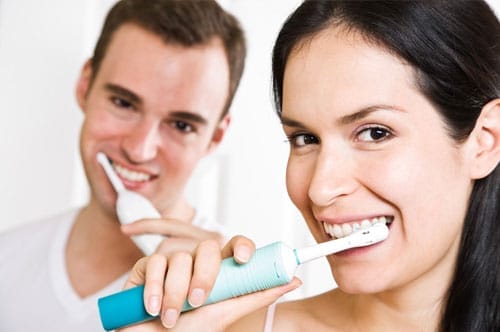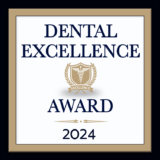Preserving the health of your smile is the main reason for dental care. This is always in the back of our minds when we’re looking for the best toothbrush for our at home dental care. And the most overlooked part of that care in the months between checkups is prevention!
Your frontline of defense against disease and decay is brushing your teeth and your primary weapon is, obviously, a toothbrush.
So, let’s talk about how this implement that acts as an important preventive dentistry tool.
Keep reading, and then be sure to get in-touch with our team to schedule your next appointment in our Shorewood, IL dentist’s office.
The Right Equipment

The point we are trying to make is that you should be well-acquainted with your toothbrush.
But have you ever really given it much thought?
Does it come equipped with a tongue scraper. How about a gum massager?. Is it one of those toothbrushes that vibrate? Or is it one that pulsates?
Does it matter?
Nope.
None of that really makes any difference in terms of effectiveness.
In fact, all that really matters is size and bristle firmness.
Everything else is just for show and personal preference.
Finding an effective toothbrush is not complicated, but it is important that you choose the right one, or else you may not be getting your teeth as clean as you could be, and you could be putting yourself at risk for problems down the road.
The Right Size
Next time you’re changing your toothbrush, the size of your toothbrush is important. The size of the toothbrush will determine how easily you can maneuver your toothbrush around to get the hard to reach areas of your mouth.
Your back teeth, or molars, are notoriously difficult to brush. Additionally, if the head of your toothbrush is too large, or if the handle is too short, then brushing can be a frustrating exercise.
However, if the the head is too small, you will have to work that much harder to cover the surface area of your teeth, which will make it easier to overlook spots, especially when you are thinking about going to sleep or you are trying to get your bearings at the start of a new day.
You should also keep in mind that if the handle of the brush is too long, you run the risk of injuring the soft tissue inside your mouth. The inside of your cheeks and the back of your throat are particularly sensitive.
So, what should you look for in a toothbrush?
In our Joliet dental office, we have found that a toothbrush with a head that is about a ½ inch wide by an inch long is the ideal size for the typical adult patient. The handle needs to be long enough for you to be able to get a good grip on it and work it with ease.
The Right Firmness
Most people need to use a toothbrush with soft bristles. The medium and/or hard bristled brushes may be fine if you are dealing with abnormal plaque and tartar build up. However, you will want to be careful so as not to inflict damage on your teeth and gums.
Still, visiting the dentist every 3-6 months for a professional cleaning is the best way to eradicate:
- Tartar.
- Plaque.
- Bacteria that has built up.
At that point, we may make recommendations regarding your toothbrush, dental floss, and mouthwash choices. We can also set you up with fluoride treatments, sealants, and so forth.
Keep Smiling!
Do you have any questions or concerns about your toothbrush or preventive dentistry in general? We’d love to help — Contact us today to schedule an appointment!




